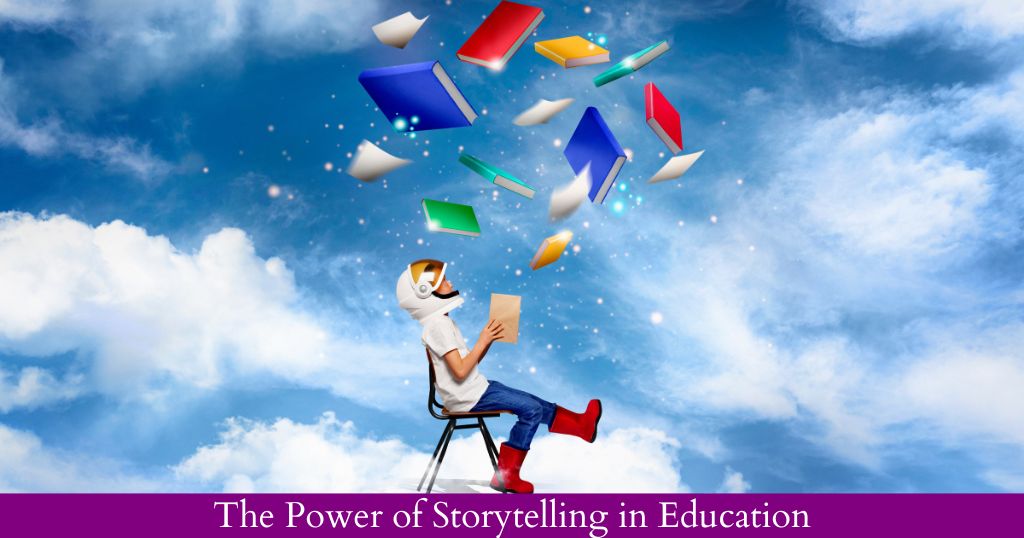Introduction
Storytelling is a powerful tool for leaders to influence, educate, and motivate. Why is it so important for learning? Storytelling creates connections between people and ideas, and between cultures, histories, and values. When we tell stories about our countries, communities, and families, we intuitively understand that the stories we tell are part of the bonds that hold us together.
Educators use a variety of methods and approaches to make the learning process more engaging and effective. These include the experiential approach, the play-way approach, the activity-based approach, and the competency-based approach. Brainy Stars International Montessori & School one of the top 10 schools in Jayanagar Bangalore, grooms its students to tackle both life’s challenges as well as those in their professional life.
The oldest and most fundamental method of teaching and learning is storytelling. If you can use it effectively, you can easily and effectively teach many topics. For example, if you want to teach any journey-related topic, you can create a story of your experiences and narrate it to your students. You can also ask them to tell the story of their journey, making the learning process more interactive and engaging while they learn new knowledge. Storytelling is not only used to teach the language aspect but also to illustrate even the most difficult and abstract subjects like Mathematics and Science.
For every complicated and simple concept and topic, there are hundreds of stories to choose from. You can use them as examples or vehicles for learning. And you can teach your concept in a meaningful and straightforward way.
Connecting learners
In addition to creating a sense of connection, good stories build familiarity and trust. They allow the listener to step into the story, making them more receptive to learning. Because good stories contain multiple meanings, they are surprisingly effective at conveying complex concepts in easy-to-understand language. And stories are much more engaging than a boring recitation of numbers or a conversation about abstract concepts.
Another reason for storytelling’s success is that it resonates with all learners. According to Paul Smith’s “10 Reasons Why Being a Storyteller Makes A Better Business Connection,” roughly 40 per cent of any group will be visual learners, who will learn best through videos, diagrams or illustrations. The remaining 40 per cent are auditory learners, who are best served by lectures and discussions, and the remaining 20 per cent will learn best through doing, experiencing or feeling. Article Sponsored Find something for everyone in our collection of colourful, bright and stylish socks. Buy individually or in bundles to add color to your drawer!
Something for everything
Storytelling has elements that resonate with all three types of learners:
- Visual learners value the mental images that storytelling evokes
- Auditory learners value the words and voice
- Kinesthetic learners recall the emotional relationships and feelings that the story evokes
Stories stick
Telling stories also helps you learn because stories are easier to recall. Research shows that learning that is based on a well-written story is remembered much more clearly and for a much longer period than learning based on facts and data.
Storytelling is important for business because, the goal of every communication is “to change your target audience’s attitudes, beliefs, knowledge and behaviour. Information alone rarely makes a difference.
Telling stories about professional failures and what leaders have learned from them is another great way to learn. Because people relate so strongly to stories, imagining what they would do in similar situations, they can work through them in a risk-free way. The added benefit for leaders is that with a single personal story, they have conveyed core values, provided insight into the development of their own experiences and knowledge, made themselves more accessible, and most likely encouraged others to learn more.
Conclusion
Storytelling in education wields transformative influence, captivating learners and fostering deep engagement. Through narratives, complex concepts are simplified, making them relatable and memorable. Stories transcend cultural and linguistic barriers, connecting diverse learners on a profound level. They ignite curiosity, encouraging exploration and critical thinking. By weaving characters and plotlines, educators create immersive learning experiences that resonate emotionally, enhancing retention and comprehension. Moreover, storytelling cultivates empathy and perspective-taking, nurturing well-rounded individuals equipped to navigate an interconnected world. Harnessing the power of storytelling and learning in Brainy Stars International Montessori & School, education holds boundless potential to inspire, empower, and enrich the learning journey.
Follow us on Facebook, Instagram, LinkedIn, Twitter, and Pinterest.





